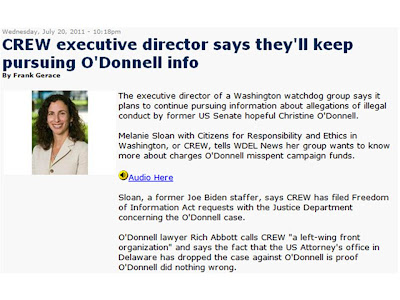In short, a non-profit group that takes money from donors is required to register with the IRS and along the way they may choose to register as a non-profit group under Section 501(c) of the IRS code. 501(c)3 organizations are described as: Religious, Educational, Charitable, Scientific, Literary, Testing for Public Safety, to Foster National or International Amateur Sports Competition, to promote the Arts or Prevention of Cruelty to Children or Animals Organizations. The corporation, fund, organization or foundation applying for the 501(c)3 tax exemption MUST be organized operated exclusively for the above activities and none other. In addition to this, most 501(c)3 organizations also apply for a “170 waiver” which makes the donations to a 501(c)3 organization tax deductible for many donors. Many times, these deductions are key to a non-profit organizations survival and loss of a 501(c)3 status can be hard to overcome since most other organizations and corporations do not give to groups without that deduction status. There are two classifications of exempt 501(c)3 groups:
Public Charity – receives a substantial part of its income from the general public or the government and public support should be broad, not limited to a few individuals or families.In order to obtain 501(c)3 status from the IRS, a group has to file Form 1023 and accompany that form with a filing fee ($850 if gross receipts are $10,000 or more/$400 if gross receipts are under $10,000). This certifies that the group fits the mold of 501(c)3 organizations and that the group understands the restriction placed on groups that receive the 501(c)3 deduction. One such restriction is on political activities. 501(c)3 organizations are absolutely prohibited from conducting political activities that intervene in election to public office. Specifically, the IRS website states:
Private Foundation – receives most of its income from investments and endowments which are used to make grants to other organizations rather than being dispersed directly for charitable activities.
Under the Internal Revenue Code, all section 501(c)(3) organizations are absolutely prohibited from directly or indirectly participating in, or intervening in, any political campaign on behalf of (or in opposition to) any candidate for elective public office. Contributions to political campaign funds or public statements of position (verbal or written) made on behalf of the organization in favor of or in opposition to any candidate for public office clearly violate the prohibition against political campaign activity. Violating this prohibition may result in denial or revocation of tax-exempt status and the imposition of certain excise taxes.There is a clear and obvious violation of the 501(c)3 charter by CREW in the first line of the IRS link above. CREW filed a very public FEC complaint against Christine O’Donnell in an attempt to derail her political campaign. Here’s video of CREW Executive Director Melanie Sloan very publicly attacking Christine O’Donnell just 5 days after she won her primary and had begun her General Election run:
Certain activities or expenditures may not be prohibited depending on the facts and circumstances. For example, certain voter education activities (including presenting public forums and publishing voter education guides) conducted in a non-partisan manner do not constitute prohibited political campaign activity. In addition, other activities intended to encourage people to participate in the electoral process, such as voter registration and get-out-the-vote drives, would not be prohibited political campaign activity if conducted in a non-partisan manner.
On the other hand, voter education or registration activities with evidence of bias that (a) would favor one candidate over another; (b) oppose a candidate in some manner; or (c) have the effect of favoring a candidate or group of candidates, will constitute prohibited participation or intervention.
The Internal Revenue Service provides resources to exempt organizations and the public to help them understand the prohibition. As part of its examination program, the IRS also monitors whether organizations are complying with the prohibition.
Click Here for the video
We’ll get back to the fact that Melanie Sloan knew that the accusations she was making against Ms. O’Donnell were completely false. First, I’d like to show yet another video, only 3 days later in which Melanie Sloan calls O’Donnell a crook and accuses her of stealing.
Now it should be pointed out that Christine has been cleared of all charges by the U.S. Attorney in Delaware and also that the FEC has yet to find an anomaly with her campaign funds. Also, the “former campaign manager” was with the campaign for two weeks and was let go (as she had been by a number of campaigns previously) for being ineffective in her job. Finally, the complaint from CREW relies on knowingly false statements made by David Keegan. In the following audio clips, Keegan admits that what he said was “political”, “worthless” and “heresay”.
- David Keegan calls his own motives “political”
- David Keegan says he did not want O'Donnell to win
- David Keegan says he wanted to make sure Christine O'Donnell doesn't run again
- David Keegan admits what he is saying is all 'hearsay' -- he learned of it, did not witness it, and does not know if his complaints are true.
- David Keegan admits he does not know if his accusations are true. He does not know if Christine O'Donnell used any campaign funds to pay her rent. Keegan admits it could be something completely different than what he thinks.
Below, Anderson Cooper gets Melanie Sloan to flat out admit that this attack is political in nature and an attempt to influence the election. She also doesn’t dispute the fact that all of CREW’s leadership is made up of Democrats and Democrat supporters.

